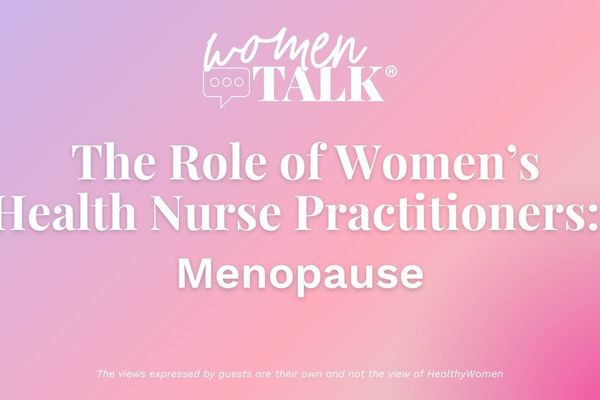Jodi Miller, 49, was experiencing distressing changes to her skin, weight, moods, sleep schedule and menstrual cycle. But when she talked to her OB-GYN, she didn’t get much help.
“I was told that all of what I was experiencing was a part of ‘the change’ and that there was nothing that could be done,” Miller said.
She got a similar response from other healthcare providers (HCPs) in her area. So she searched the internet for a specialist in midlife women’s health. She stumbled on an online clinic that focuses on women who are in menopause and perimenopause, the period leading up to menopause.
Read: 3 Tips for Finding a Healthcare Provider Who Specializes in Menopause >>
This was Miller’s first time using telehealth, so she didn’t know what to expect. But she has been delighted with the care she’s received. Miller said the care she gets virtually is better than the in-person care she had access to. The visits are thorough, personal and informative. The HCP listens and asks good questions.
“Our Zoom calls are more connective than any face-to-face I have had,” she said. “My relationship with this telehealth service has changed my life.”
Managing menopause with telehealth
Every year, more than 1 million people assigned female at birth go through menopause in the United States.
Symptoms of perimenopause and menopause can include:
- Vasomotor symptoms (hot flashes and night sweats)
- Genitourinary syndrome of menopause, which includes vaginal dryness, burning and irritation, lack of lubrication, pain during sexual intercourse or penetration, urinary urgency and urinary tract infections
- Changes in weight, sleep and mood
- Thinning hair
- Dry skin
- Tooth decay, dry mouth and receding gums
People in menopause can also face serious health risks. These include increased risk of heart disease and stroke, and bone density loss.
Some health conditions and symptoms require a physical exam or lab tests, which must be done in person. But more and more, women are turning to their laptops and phones to get menopause care via telehealth. Virtually, HCPs can provide guidance for managing symptoms, prescribe treatments, and identify signs or symptoms that require in-person follow-up.
Many HCPs now offer remote visits, which can build on existing relationships. Plus, menopause-specific and broader women’s health telehealth services are becoming more popular.
These new options can help fill gaps among local HCPs who may not know much about menopause. In a 2017 study, 2 out of 10 medical trainees surveyed said they had zero lectures on menopause during residency. And only 7% said they felt well-enough prepared to manage menopause care.
“There aren’t as many healthcare providers who are familiar with treating menopause as you might think,” said Karyn Eilber, M.D., professor of urology and associate professor of obstetrics and gynecology at Cedars-Sinai Medical Center and a co-author of “A Woman’s Guide to Her Pelvic Floor: What the F*@# Is Going On Down There?”
Finding an HCP with menopause expertise is especially important because women may not know all the symptoms of menopause, and they might not recognize what is happening. Virtual visits with a specialist can be a way to get accurate information, diagnosis and treatment.
“If you don’t have a menopause provider near you, it’s better to have a telehealth consultation than settle for [poor] management of your menopausal symptoms,” Eilber said.
Telehealth and access
The convenience of telehealth may also help more women get care. Perimenopausal and menopausal women are usually in their 40s and 50s. This can be a particularly busy time for people who are juggling family and work responsibilities. Women who might not take the time to see an HCP in a physical office may be more likely to seek care from the comforts of home and on their schedule.
Convenience won over Laura Goetz, 56, a social worker based in Wisconsin.
“The ease of telehealth around my work schedule was wonderful,” Goetz said.
Goetz also said that she had found that many HCPs in her area were lacking knowledge about menopause. So, telehealth allowed her to access care from more qualified specialists than she could find locally.
Read: Women Deserve Care from Healthcare Providers Who Understand Menopause >>
Although telehealth has worked for Goetz so far, she noted that online health services may not be an option for everyone. Cost, technology and language barriers can keep some people from accessing telehealth.
“The biggest drawback I see as a social worker is that many women cannot access telehealth for menopause as many providers do not accept insurance or they do not have access to the technology needed for a virtual visit,” Goetz said.
Racial and other disparities in menopause have been well documented over the years. And even women with health insurance may struggle to pay out-of-pocket fees that can come with telehealth visits.
“It’s wonderful that menopause awareness is finally getting attention. But many women still do not have access to the quality care they deserve,” Goetz said. “I worry that, for the moment, quality menopause care is only available to women with the financial means to pay privately … it seems we are failing women when they need help the most.”
How to choose a telehealth provider for menopause care
When choosing a provider, it’s important to do your research first.
“I would choose a telehealth service with licensed providers in your state, and one that accepts your insurance if you have coverage,” said Kim Langdon, M.D., an Ohio-based OB-GYN who works with an online HCP and pharmacy.
Eilber said that’s a step women should take, whether they’re choosing a telehealth provider for menopause or anything else.
“Even though it’s telehealth, the provider still has to be licensed in the state where you legally reside,” Eilber said. “As for a menopause provider, it’s best to seek someone who has experience and/or certification in treating menopause.”
Use: The Menopause Society Find a Provider Tool >>
Once you’ve chosen a telehealth provider, make sure they take a full medical history. Also make sure that your visit includes a real video visit and not just a questionnaire reviewed by a bot, said Lisa Larkin, M.D., president of The Menopause Society and member of HealthyWomen’s Women’s Health Advisory Council.
“Find out if you can access the same provider for follow-up needs,” Larkin said.
Larkin also suggested asking these questions when choosing a telehealth provider:
- Can the provider refer you to an in-person practice if needed?
- Can you fill prescriptions anywhere or do you have to get them from the telehealth provider?
- Can you access the notes from your visit to share with other HCPs you may see?
- How much will visits cost and will your insurance cover the visits?
No matter who you see, Eilber said she encourages women to be active participants in their care.
“Women should feel comfortable asking as many questions as needed,” she said.
Resources
The Menopause Society Find a Provider Tool
This educational resource was created with support from Astellas, a HealthyWomen Corporate Advisory Council member.
- A Conversation with Dr. Octavia Cannon About How Race Can Influence Menopause ›
- 3 Tips for Finding a Healthcare Provider Who Specializes in Menopause ›
- Menopause Got You Down? There’s an App For That. ›
- Drying Up in Menopause - HealthyWomen ›
- What Is VMS? Hot Flashes and Night Sweats. - HealthyWomen ›
- 9 Tips for Tapping into Telehealth for Menopause - HealthyWomen ›







